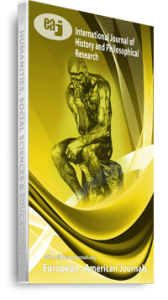The comportment and passions of Africans in Wars that were fought to settle mostly European interest brought about conflicting, contradicting but very interesting scenes in the Human interface. One of such moves was the switch of Camps and positions of loyalties to diametrically different ones. A typical example where such dramatic switches of modes and camps of belonging can be represented is the comportment of the German soldiers in Cameroon especially those from the Bamenda Grassfields during and after the First World War. Their comportment in all its form represents veritable trajectory of shifting loyalties which were hall marks in the general context of continuity in change . When the First World War began in the Balkan peninsular, Britain and France surprisingly transformed Cameroon like many parts of Africa into important battle grounds and this caused the German military contingent along those of its peers in Africa to develop a crucial need for soldiers and military personnel of all sorts. This was aggravated by the fact that, the Poliziestruppe and the Schutztruppe all German military and para military organization formed in 1891 and 95 respectively were not very versed with the African terrain. The need for an urgent solution to this urgent problem urged the German authorities to turn to the natives to negotiate possibilities of mass recruitment. In Cameroon they quickly turned to the Grassfield polities which had been identified as a sure source of men with exceptional bravery and resilience. From the start the Germans had the fortune of conscripting hundreds of men into their military service from these areas who served and interfered in different capacities during the war. As frontline soldiers, carriers, leads or cooks, these Grassfields these conscripts were essentially people of the arms. Following the defeat of the Germans and its allies, many of these people were rounded up as war captives and ferried to Spanish Guinea (Fernando-Po) where they embraced Christianity with the Holy Scriptures (Bible) being its organic text. From 1916 or earlier, till 1921, these men became soaked in Christianity and were yearning for opportunities to make others know about the working of their new found faith. Additionally, they espoused to a new way of life which virtually challenged everything connected to the established customs and traditions in their traditional fiefs or oligarchies. In our case, the movement from Arms to scriptures was done in Fernando-Po but their dreamt opportunities presented themselves when they were returned to the Grassfields in 1921.From this time hence, these returning soldiers, took upon themselves the duties not only to preach aboo Christianity but also to challenge the traditional tenets that dictated the tone of traditional governance then. This is the main thrust of this paper. It tries to fine evidences from primary and secondary sources and complements them with oral accounts to show not only how these men switched modes and functions from arms to scriptures but also how their return strove and succeeded to inscribe a new way of life in Africa with emphasis on the Cameroon Grassfield societies. It argues emphatically that; these men either in their military uniforms or in the scriptural garments, truly represents elements of divorce in continuity. By abandoning their bayonets, these men tactfully divorced from their early mission of being soldiers. By getting soaked in Christianity, they espoused a new philosophy and world view and by challenging the traditional status quo when they were sent back home, they ensured continuity on what the Germans and other colonial powers had begun.
Keywords:

